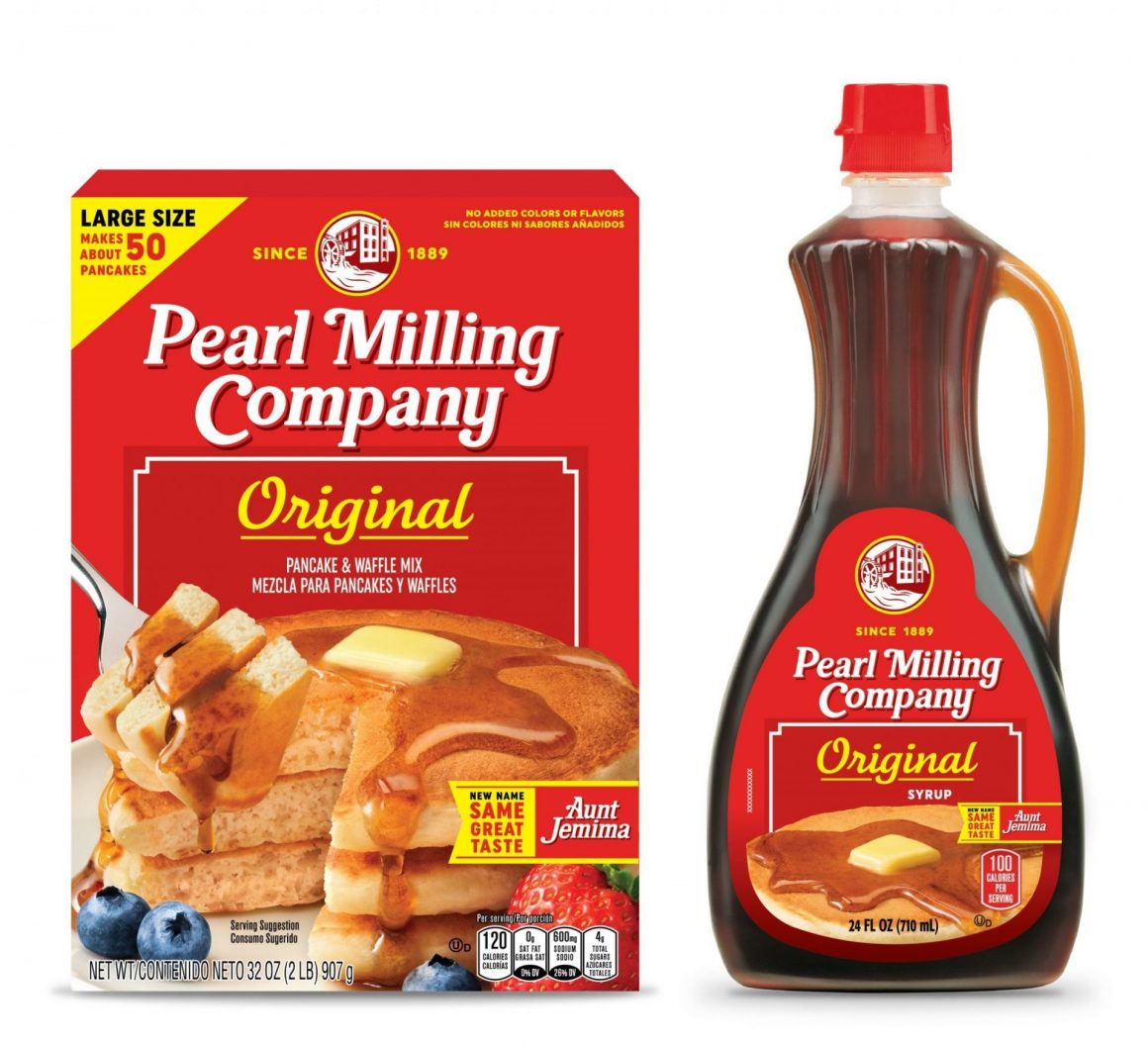Last week, PepsiCo and Quaker Oats revealed a new name and logo for Aunt Jemima, the popular pancake mix and syrup brand that for years featured a caricature of a Black woman, after widespread protests following the death of George Floyd stirred a racial reckoning that spilled into the grocery aisles.
The new brand will be called the Pearl Milling Company, after the original business that introduced the iconic self-rising pancake mix under the Aunt Jemima name.
Although the recipes, product packaging and familiar red boxes will remain, the image of Aunt Jemima will no longer be used. Products with the Aunt Jemima name will be phased out of stores in June.
Calls for Aunt Jemima to change its branding dates back decades. The image of Old Aunt Jemima was based on a song by field slaves that later performed at minstrel shows. The image and likeness of a Civil War-era Black woman content to serve white masters, “do not reflect our core values,” according to a statement posted on the Aunt Jemima website.
While the change will be hailed by many, Michelle Ngome, president of the African American Marketing Association sees renaming the brand after the milling company Aunt Jemima was produced as a missed opportunity.
“Given Aunt Jemima’s past, Pearl Milling Company is still derived from the same history. The name gives off plantation vibes and it looks like a generic brand,” Ngome says.
The marketing strategist, expert and consultant believes the Aunt Jemima rebrand is a prime example of companies diluting their brand equity.
“Name changes can be a cumbersome process, but PepsiCo could have changed the name to Nancy Green or Aunt Green and kept the logo to honor the original creator,” she suggests.
Diversity and inclusion champion, founder and CEO of Cheryl Overton Communications, agrees.
“Certainly, steps were taken over the years to modernize the brand, but that change did not interrogate the character’s origin or the impact that perpetuating racism through branding and marketing communications has on the customers its serves and the world at large,” says Overton.
Overton, who specializes in navigating brands relationships with stakeholders through the voices, influence and persuasive power of multicultural consumers said, “There’s really no way to erase the racism the brand is linked to, but this name change is a more demonstrative step away from the harmful commoditization of Black history and shelf-space reminders of a shameful chapter in American history.”
Aunt Jemima is one of several trademarks set to be rebranded as corporate brands and teams based in racist or insensitive imagery are held accountable by consumers. In 2020, several brands like the Washington Football team, Uncle Ben’s, and Eskimo Pies announced impending name changes.
Since millennials and Gen Z consumers are increasingly supportive of socially conscious brands, Overton believes commercial rebrands like Aunt Jemima will continue to trend.
“I believe brands have a right and responsibility to be agents for social good and social change. They should operate with purpose as a core value versus obligation; it’s what consumers, employees and partners increasingly expect and demand,” she said.
In a statement, last summer PepsiCo and Quaker Foods said they “acknowledge the brand has not progressed enough to reflect the confidence, warmth and dignity,” needed to create meaningful support and engagement in the Black community.
This is why the Pearl Milling company pledged $1 million to support Black girls and women as part of their $400 million, five-year investment plan to support Black business and communities while increasing Black representation at PepsiCo.
Both Ngome and Overton hope pledging support to black businesses and communities is only the beginning of PepsiCo and Quaker Foods’ operation to address their past and show up as real allies in the Black community.
“These companies are great when it comes to financial contributions towards corporate and social responsibility. With all that is going on, companies need to be more transparent with their strategy and results,” Ngome tells Marcom Weekly. “I would like to see the money go towards grassroots, community-centered organizations that need that financial boost to enhance the community.”
Overton adds, “these all sound like great DEI decisions and community investment opportunities,” but work still needs to be done.
“To show solidarity with Black people they should listen to Black People — make sure they are mindful of Black history as well as the present in their planning and execution. They need to make sure decisions are made with the informed and lived experience of Black people,” she adds.
Experts tell Marcom Weekly brands that want to strengthen multicultural marketing communications must do so ongoingly.
“We’re all watching with great interest how they execute against the pledges they made,” says Overton.


